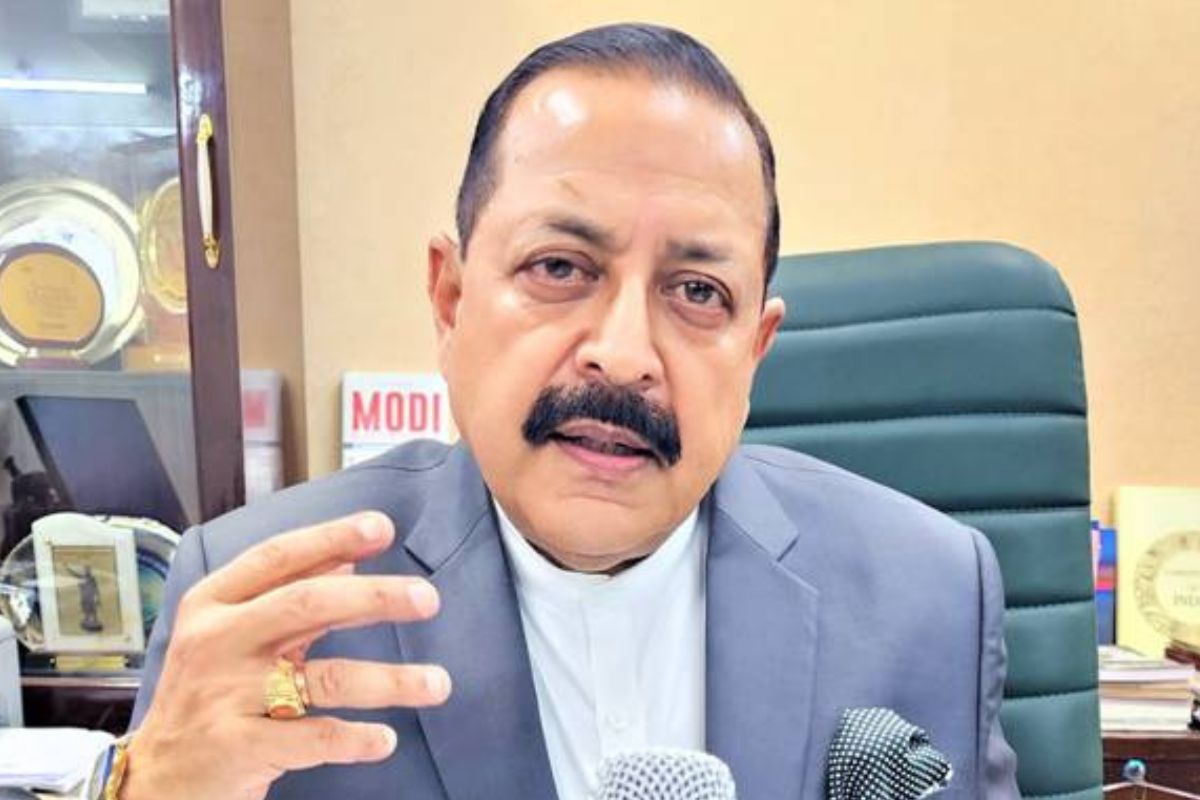Nuke energy critical for India’s ‘Net Zero’ goal: Jitendra Singh
The Union minister for science & technology highlighted the Union Budget 2024-25’s vision for India’s nuclear power expansion that sets a target of achieving 100 GW by 2047.
The Union minister dismissed Opposition parties’ attempts to create a narrative about the restoration of Article 370 as hollow rhetoric.

Union Minister Jitendra Singh (Photo: PIB)
Union Minister Jitendra Singh has claimed that Jammu & Kashmir has undergone a historic transformation following the abrogation of Article 370, crediting Prime Minister Narendra Modi for introducing grassroots democracy in the region.
“Jammu & Kashmir ushered in a new era of grassroots democracy under PM Modi,” he said In an exclusive interview with Doordarshan News.
Dr. Singh emphasised that true local self-government always eluded J&K, despite the 73rd and 74th Constitutional Amendments bringing local self-governance to the rest of India. People of J&K were denied these rights under the guise of special status provided by Article 370 and 35A, he said.
Advertisement
He claimed that the regional political parties, which claimed to be champions of “self-rule” or “autonomy”, made sure that the same was denied to the elected representatives of Panchayati Raj Institutions.
He dismissed Opposition parties’ attempts to create a false narrative about the restoration of Article 370, stating that these efforts are hollow rhetoric that no longer resonates with the people of J&K. “People of J&K have seen through these age-old tricks of changing the name of alliances and making empty promises. This no longer works with the new generation of voters who have witnessed the helpless plight of earlier two generations,” he asserted.
Advertisement
”In the last five years, they have witnessed the development model of PM Modi and do not wish to deny themselves the benefit of evidence-based governance and strong leadership provided by Prime Minister Modi,” he added.
Dr, Singh expressed confidence about the success of the upcoming elections in J&K, the first to be conducted in a decade, noting a strong wave of enthusiasm among the citizens. He highlighted that the vibrant democracy of the region is ready to bloom again post-abrogation, as demonstrated by the high voter turnouts in recent elections, including the Lok Sabha polls, in which voter participation in J&K nearly matched the national average of 60%.
He underscored that the first-ever Zilla Parishad elections in J&K marked a watershed moment in the region’s history. He lamented that, for decades, the people of J&K were denied their democratic rights due to the misuse of Article 370 by vested interests. These so-called proponents of “self-rule,” he argued, deprived local representatives of the financial and administrative powers necessary for effective governance.
Reflecting on the past, Dr. Singh lamented how previous elections in J&K saw candidates securing as little as 8-10% of the vote being elected as MPs and MLAs. He had previously proposed a minimum threshold for votes required for election, but this was resisted by those with vested interests in maintaining dynasty politics. However, he stressed that PM Modi’s reforms have changed everything that stood against the welfare of the people of J&K, bringing their democratic aspirations to the forefront after decades of misgovernance.
The minister also drew parallels between the transformation in J&K and the Northeast of India, where they have gained the trust of the people. He stated that, except for one state, their party now governs all Northeastern states, dispelling initial fears at social and cultural levels.
“In the years to come, J&K will emerge as a beacon of transformation for entire India”, said Dr. Singh. He stated that the abrogation of Article 370 has laid the foundation of a new era in J&K, where the people’s voices are heard and their rights fully realised. He reiterated that J&K will soon be in a position to lead India’s growth story under the leadership of PM Modi.
Advertisement